Are you looking to streamline the process of sharing vital medication information? Crafting a well-structured letter can be the key to effective communication between healthcare providers and patients. In this article, we'll walk you through the steps to create a compelling letter template that ensures your request is both clear and comprehensive. So, let's dive in and discover how to enhance the exchange of medication information!
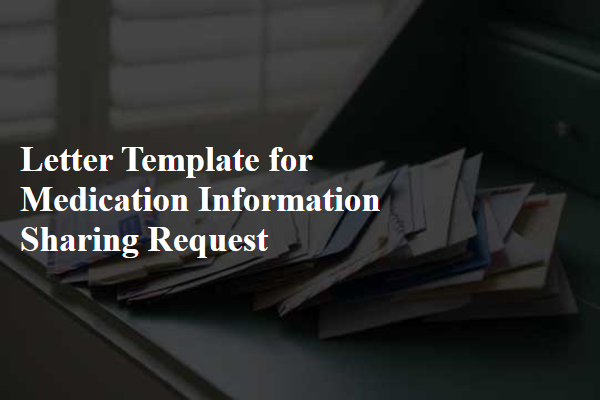
Patient Details
To maintain continuity of care, accurate medication information sharing is crucial. Patient details should include full name (e.g., John Doe), date of birth (e.g., January 15, 1985), and contact information (e.g., phone number, email). Additionally, relevant medical history (e.g., allergies to penicillin, chronic conditions like diabetes or hypertension) and current medications (e.g., dosage, frequency for Metformin 500 mg taken twice daily) must be documented. Clear identification of the healthcare provider's name (e.g., Dr. Smith at City Health Clinic) and medical record number will facilitate efficient communication with the pharmacy or specialists involved in the patient's treatment. Timely requests for this information ensure that the patient receives appropriate and effective care without any delays or medication errors.
Medication Information
Medication information sharing can significantly enhance patient safety and treatment outcomes, especially in complex cases involving multiple prescriptions. Specific medications, such as anticoagulants like Warfarin, may require regular monitoring of International Normalized Ratio (INR) levels to ensure proper dosing and reduce the risk of severe bleeding complications. Likewise, medications like Metformin, commonly used for Type 2 Diabetes management, necessitate awareness of renal function to avoid lactic acidosis, a rare but serious side effect. Additionally, it's crucial to share up-to-date information regarding patient allergies, particularly to medications like Penicillin, as these can lead to adverse reactions. Collaboration among healthcare providers ensures that comprehensive medication lists are available, ultimately promoting informed decision-making within healthcare systems.
Purpose of Request
Healthcare professionals often require comprehensive medication information to ensure patient safety and effective treatment plans. A medication information sharing request aims to gather detailed data concerning drug interactions, contraindications, recommended dosages, and potential side effects associated with specific medications. This information is crucial for optimizing pharmacotherapy, particularly for patients with multiple chronic conditions or those requiring complex medication regimens. Understanding the pharmacological profiles of medications like Metformin (prescribed for diabetes management) or Warfarin (often used to prevent blood clots) is essential for tailoring individual treatment and minimizing adverse reactions. Sharing this vital information among healthcare providers fosters collaboration and enhances patient care continuity.
Privacy and Consent
Medication information sharing requires careful consideration of privacy regulations and patient consent. The Health Insurance Portability and Accountability Act (HIPAA) ensures that protected health information remains confidential. Consent forms should specify the type of medication information being shared, the recipient's identity, and the purpose of sharing, such as treatment continuity or medication reconciliation. Patients must be informed about their rights, including the ability to revoke consent at any time. Clear communication about the implications of sharing sensitive data can enhance trust and foster a collaborative healthcare environment while safeguarding individual privacy.
Contact Information
A medication information sharing request often includes critical contact details for clarity and effective communication. Essential elements include the sender's full name (e.g., John Smith), professional title (e.g., Pharmacist), organization name (e.g., City Hospital Pharmacy), phone number (e.g., +1-234-567-8901), email address (e.g., john.smith@cityhospital.org), and the recipient's details for targeted outreach. In addition, specifying communication preferences, such as preferred contact times or methods (email, phone call), ensures a streamlined process in obtaining necessary medication-related information. Accurate and easily accessible contact information is vital for timely responses and fostering collaboration between healthcare professionals, patients, and institutions.

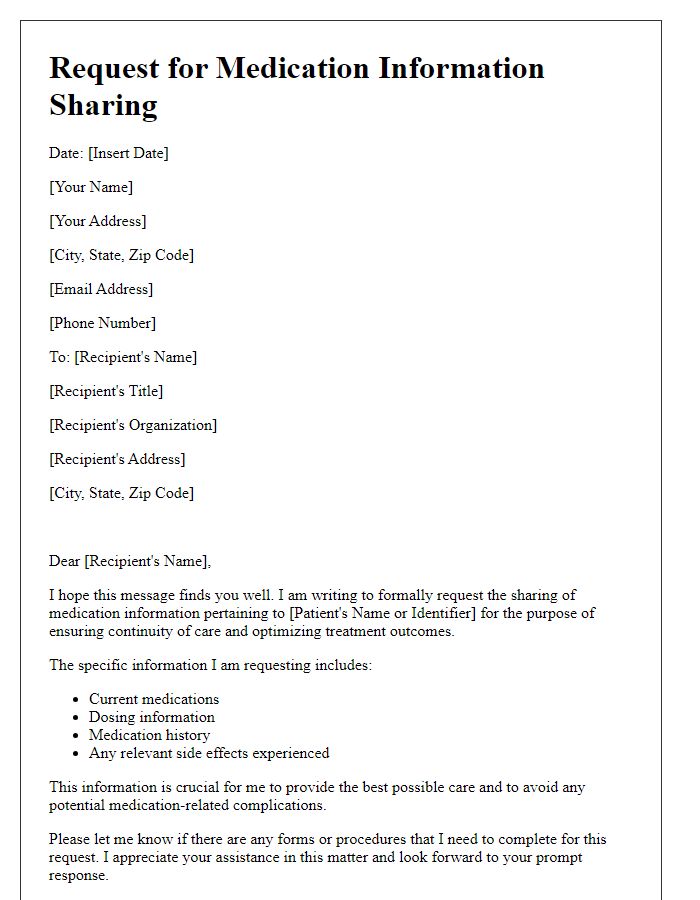
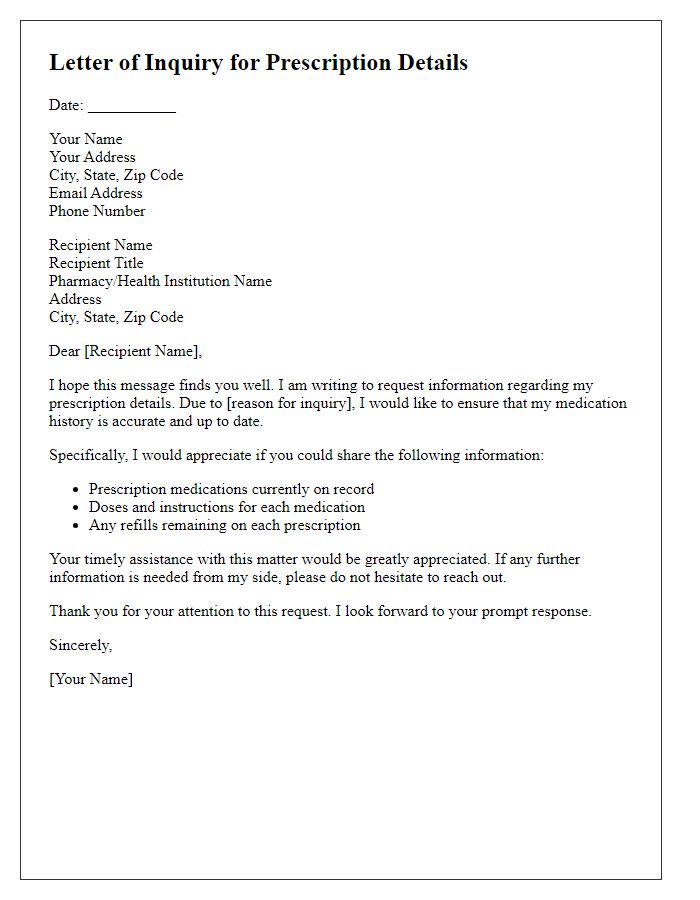
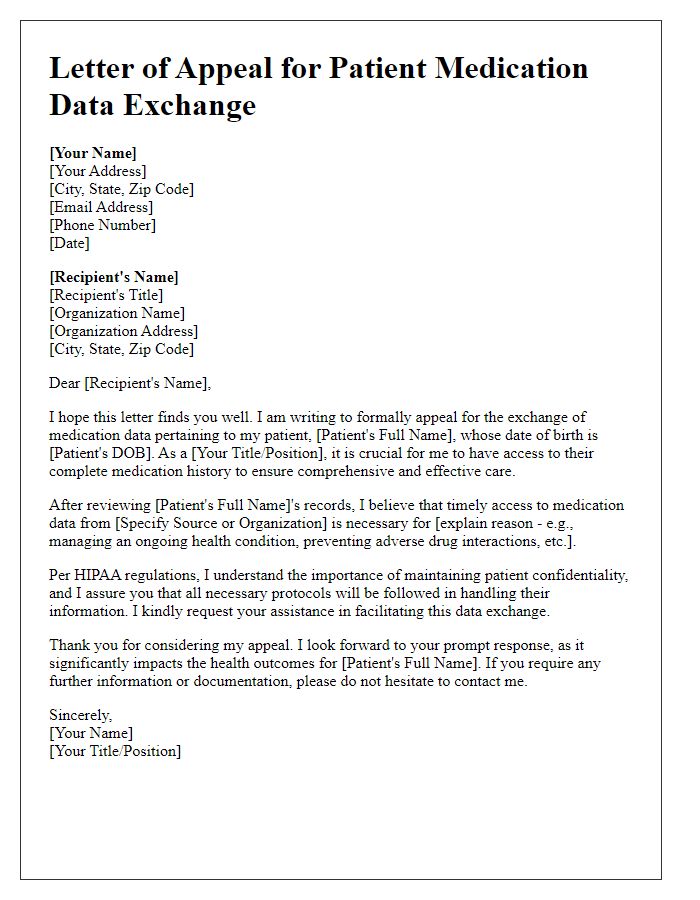
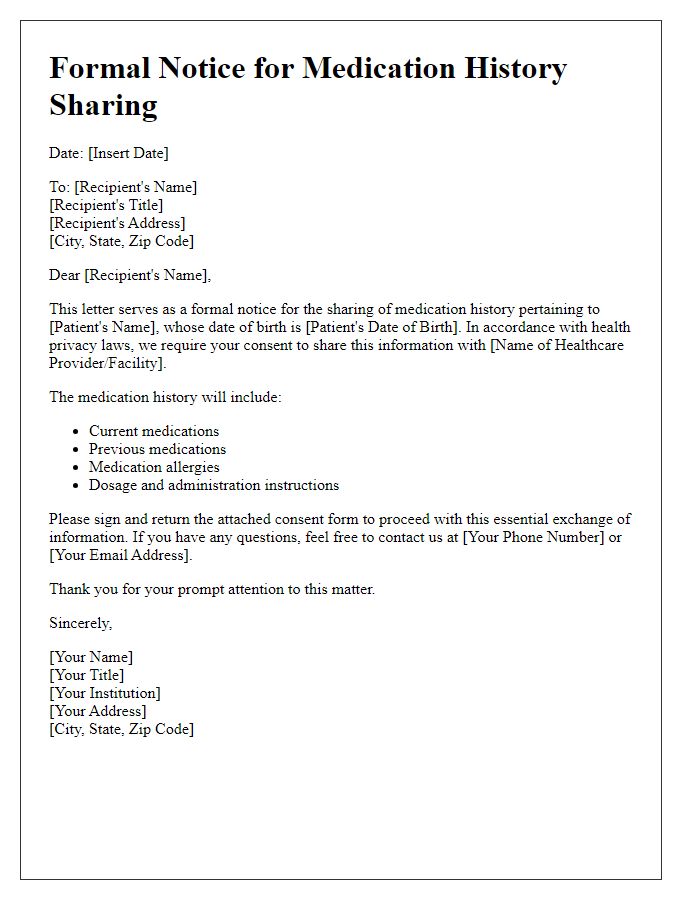
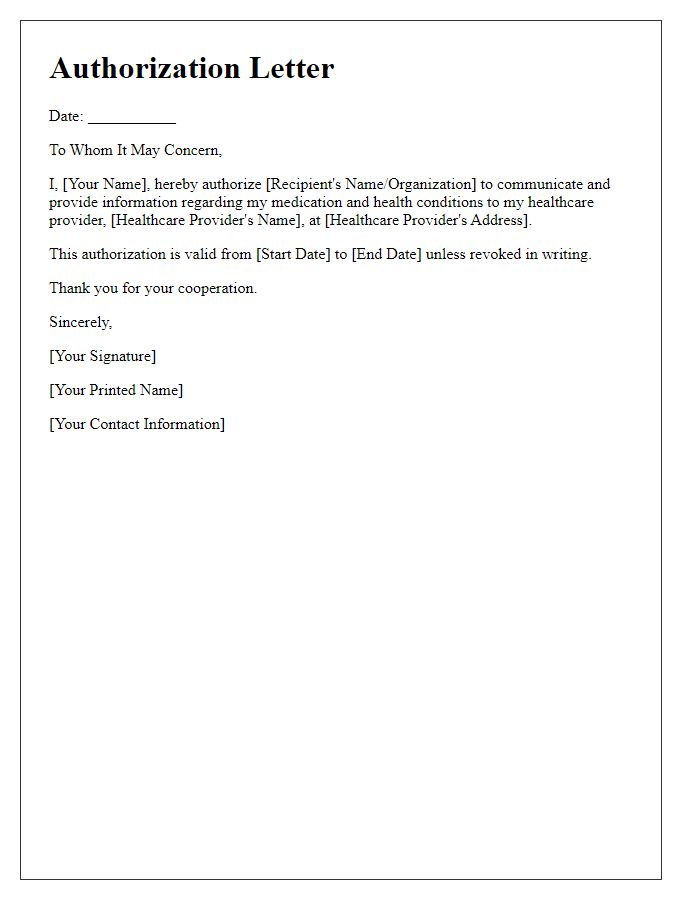
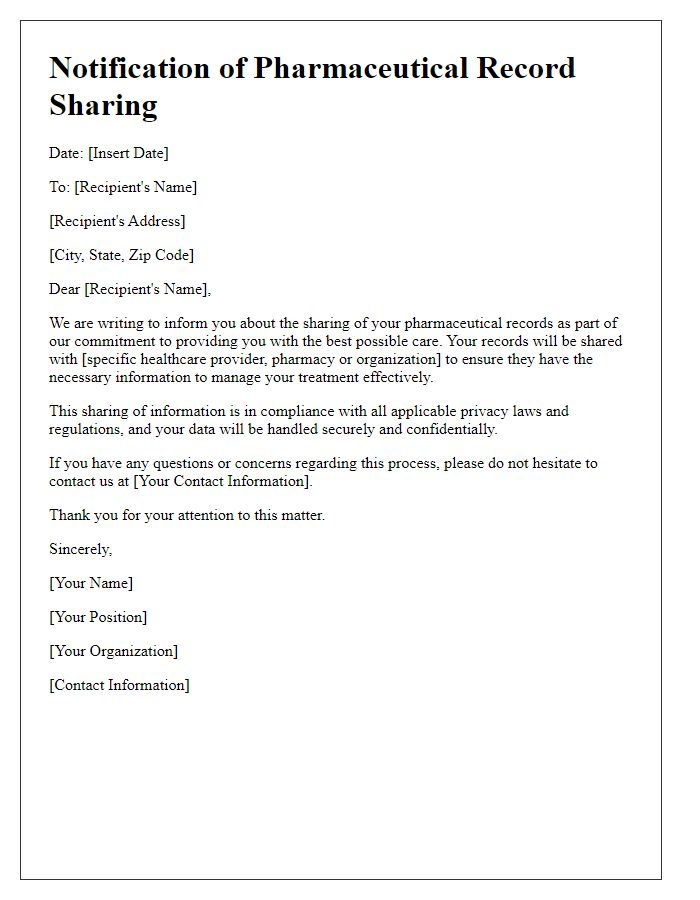
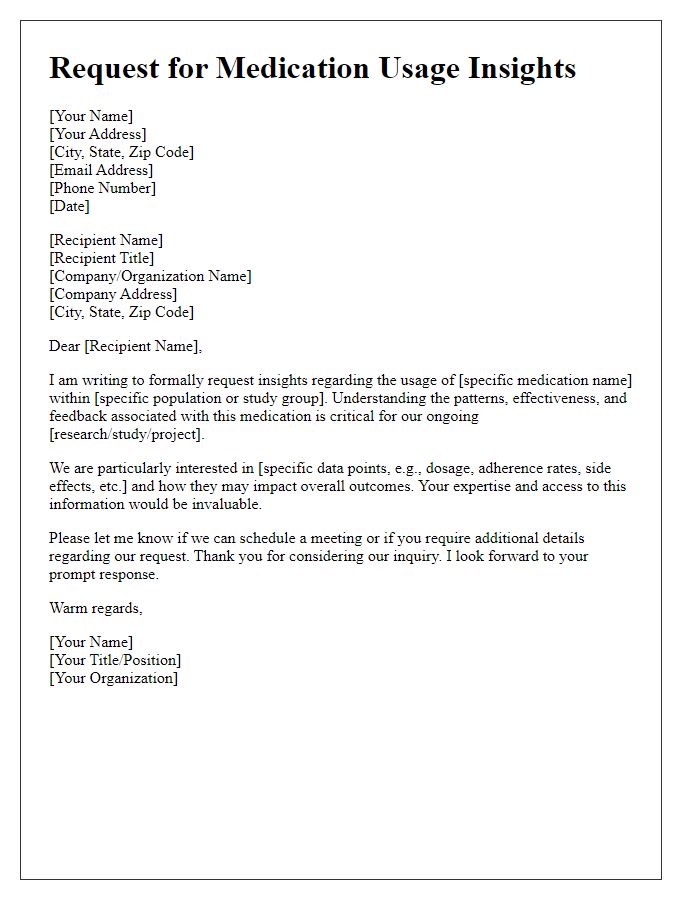
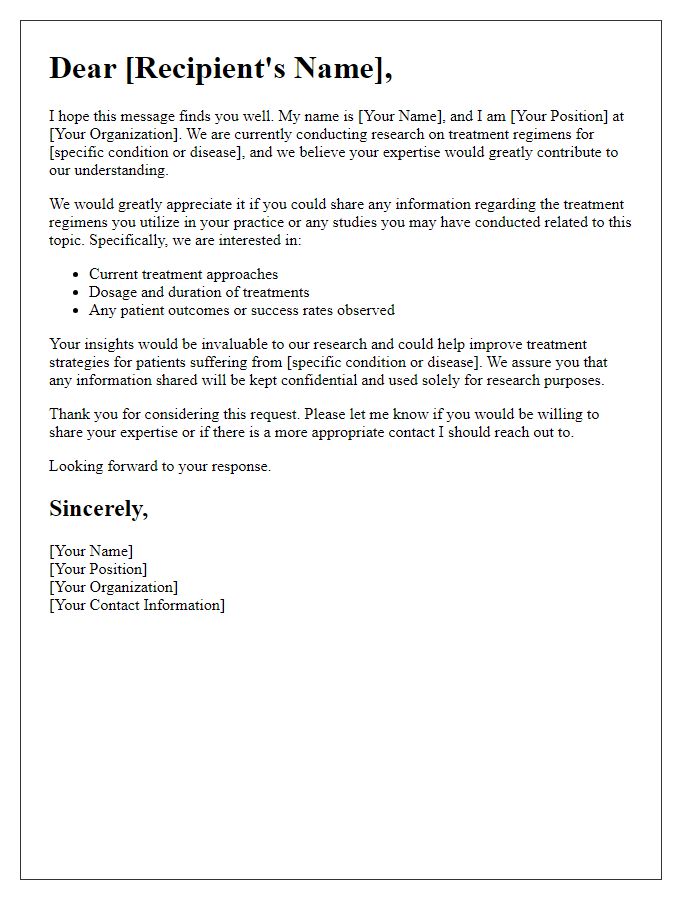
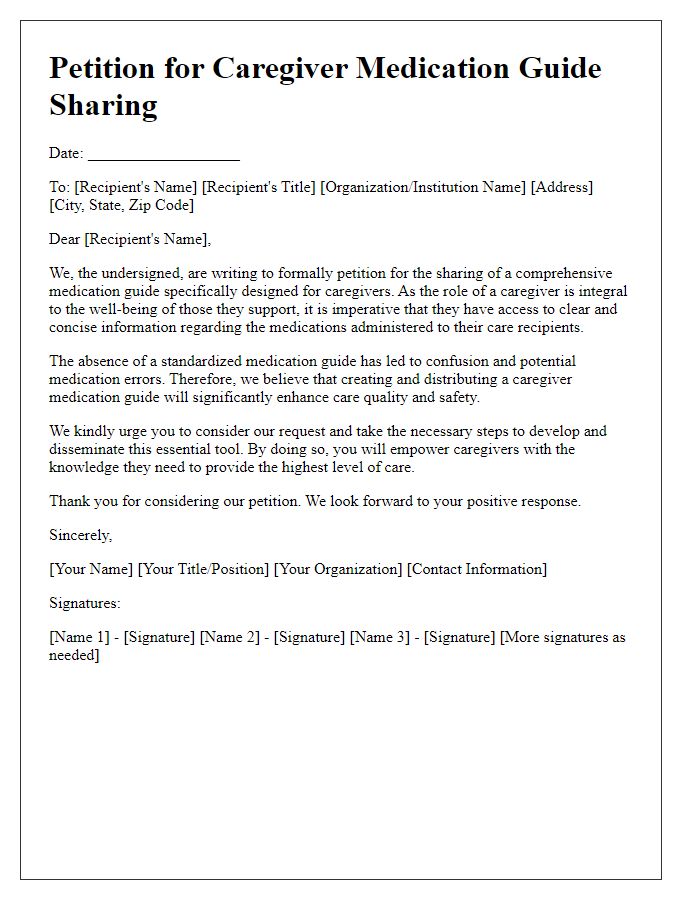
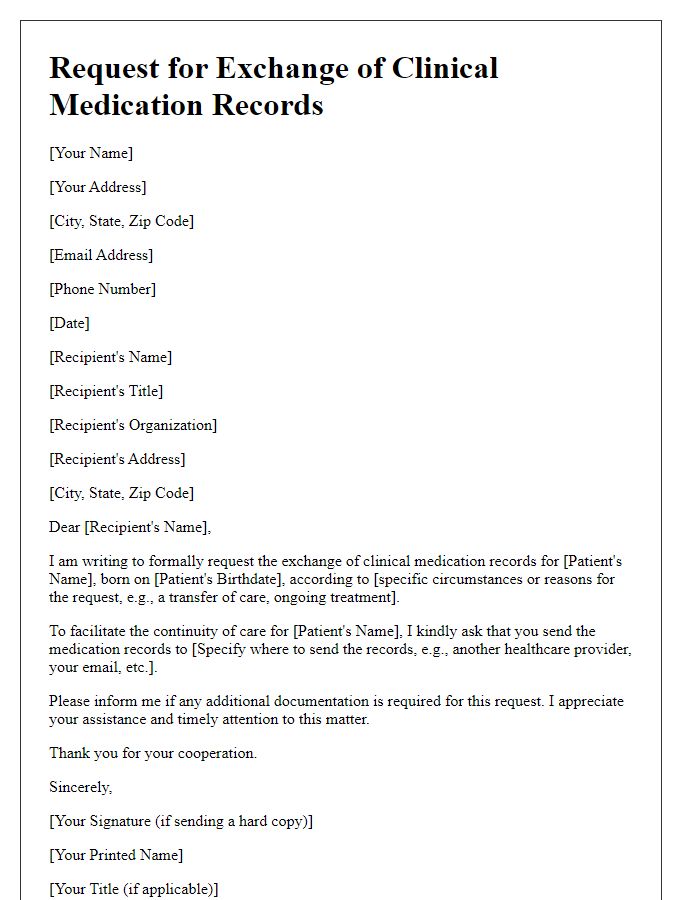

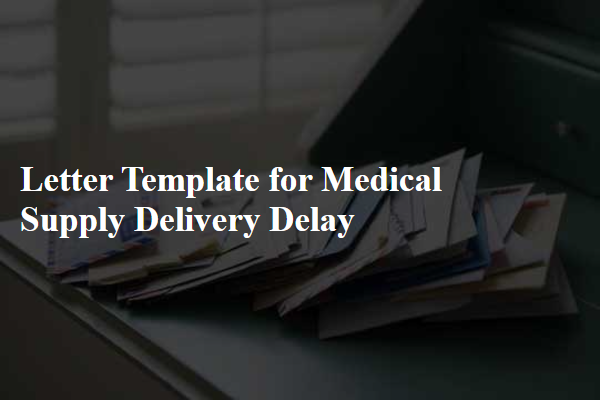
Comments